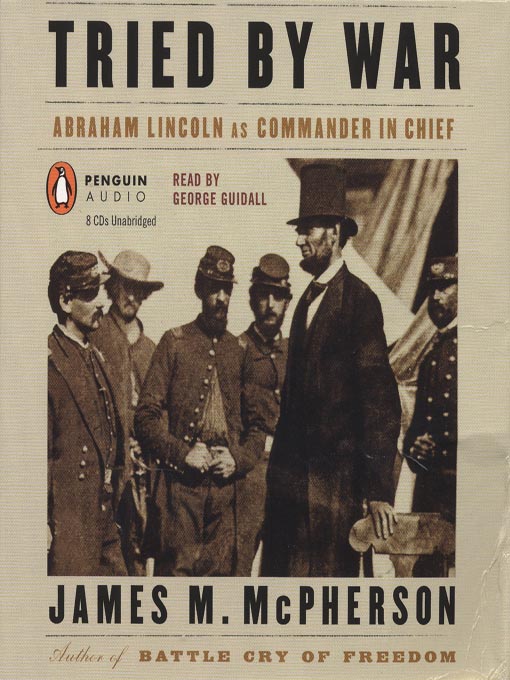
I just finished Tried by War: Abraham Lincoln as Commander in Chief by James M. McPherson.
The 15 states in the Confederacy had the professional soldiers, the 18 states of the Union had the population, the manufacturing and the communications. It took 4 years for the 22 million northerners with 32 times the arms production to conquer the Confederacy. It seems to me that it did so by:
- Isolating the Confederacy from foreign aid, perhaps especially when in the middle of the war the Emancipation Proclamation was issued making it a war about slavery.
- Destroying the economic base of the Confederacy by blockade (of an economy that traded cotton for manufactured goods), freeing the slaves, confiscating property, destroying the inland shipping and railroad infrastructure, and devastating the land and agricultural production.
- Bringing more and better supplied armies to bear on the Confederate armies, in part by the introduction of the draft and the recruitment of 200,000 black soldiers and in part by the manufacturing strength (85,000 Spencer repeating rifles made the Union cavalry a fearsome force in the last year of the war). The refusal to exchange prisoners by the North, and the policy by the South of killing black soldiers and their officers taken prisoners may both have helped.
Still, the approach of waiting to begin battle until one has overwhelming military advantages for the Union side does not seem too bad to me, since it was possible to mobilize such advantages, and especially since Confederate generals such as Lee and Jackson seemed too talented.
I remain unconvinced the Lincoln by several years of reading during the war attained a great deal of military expertise.
Of course, one does not judge Lincoln solely, or even primarily as a military leader. I have to like the guy who grabbed an ax to help soldiers clearing trees or who often went to visit the troops and the wounded, sometimes bringing his wife. And of course, his judgment on the protection of the union, the abolition of slavery, the limits of the interference with civil rights, and the political actions needed to successfully prosecute the war were the bases for the rating as perhaps our greatest president. His military skills were just icing on the cake.
No comments:
Post a Comment